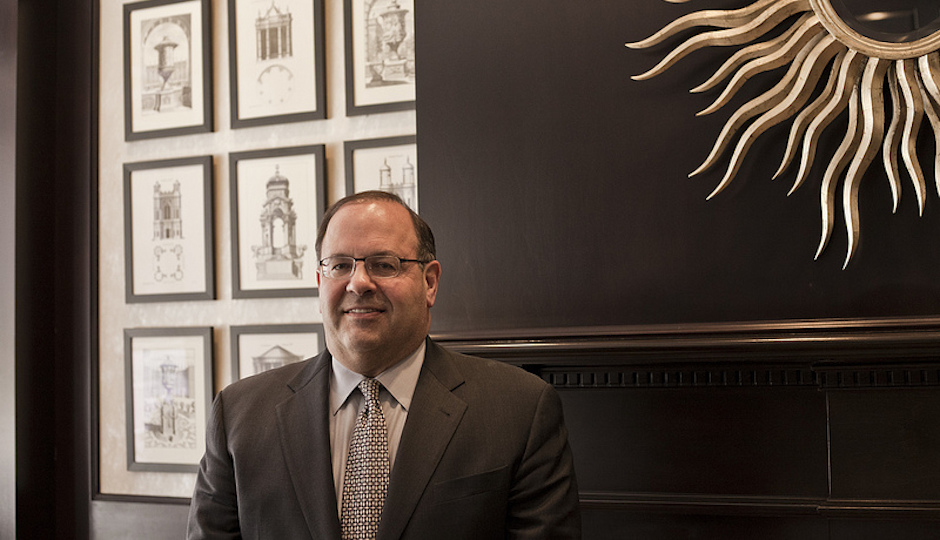Council’s Resident Realtor Just Voted Against a Tax Hike on Real Estate Sales

Allan Domb in the lobby of Parc Rittenhouse. | Photo by Laura Kicey
A City Council committee voted 6-2 on Thursday to approve a small increase in the real estate transfer tax, which is levied when houses and other properties are sold.
The proposal was introduced on behalf of City Council President Darrell Clarke. Clarke wants the city to sell a $100 million bond and put the proceeds toward the Basic Systems Repair Program, which helps fix heating and plumbing systems for low-income homeowners, as well as a new program that makes low-cost loans for home repairs to middle-income homeowners. Revenue from the .1 percent increase to the transfer tax that the committee approved on Thursday would be used to pay down the debt on that bond.
Councilman Allan Domb, a Philadelphia realtor who earned the nickname of “Condo King” in the years before he ran for office, voted against the proposal on Thursday, saying he thinks the city should be able to find money for the Basic Systems Repair Program without raising a tax. Of course, it’s a tax that affects realtors more than many others.
In Philadelphia, the real estate transfer tax is 3 percent, which is added to a 1 percent transfer tax at the state level. Typically, the buyer and seller split the cost of the taxes evenly. The increase approved by the committee would bring the city’s transfer tax to 3.1 percent from 3 percent. At the current rate, when someone sells a house for $250,000, the city collects $7,500, split by the buyer and seller. If the full City Council approves the proposed increase, the city would collect $7,750 on a sale at that amount, or an additional $125 each by the buyer and seller.
Paul Garvey, president of the Greater Philadelphia Association of Realtors, described the transfer tax increase as especially harmful to low-income residents, seniors and first-time homebuyers. Up-front costs are are a major deterrent for would-be homebuyers, Garvey said, and the city’s transfer tax is already three times greater than that of the surrounding counties. An increase would make the city a less attractive place to buy a home, he said.
Domb served in Garvey’s position for two years before joining City Council. He didn’t immediately return messages from Philly Mag on Thursday afternoon.
Councilman Bill Greenlee, who voted in favor of the legislation, said the transfer tax hasn’t been raised in almost 30 years. And during that time, he said, the city adopted a 10-year tax abatement for new construction and major renovations — policies that have undoubtedly benefited the real estate industry. In that context, Greenlee said, it isn’t fair to suggest that the city is sending the wrong message to builders, buyers or sellers. The transfer tax increase is meant to help poor people in neighborhoods that don’t see a lot of development activity, he said.
“Personally, I don’t know how you can be opposed to that,” Greenlee said.
Domb said he isn’t opposed to that part — just the tax increase. So did Republican Councilman David Oh.
It was a rare split vote for City Council. Will it be a harbinger of other impending disagreements? Clarke is famously fond of unanimous votes, and he has said he’s hoping to find the right tweaks or alternatives to Mayor Jim Kenney’s budget proposal that will get as many Council members as possible to agree. That makes it sort of significant that some Council members are willing to vote against Clarke’s own proposals, especially Oh, who has been an ally to Clarke despite their differing party affiliations.
The bill could come up for a final vote in two weeks.
Follow @jaredbrey on Twitter.